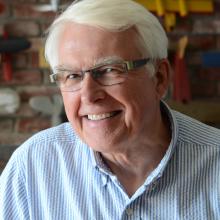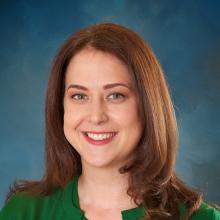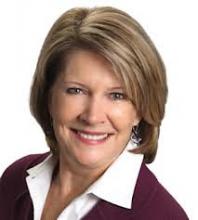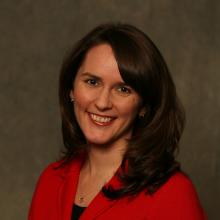Welcome | Log In
The Philanthropy Works Podcast
Candid Conversations with Leaders throughout The Nonprofit World
Great interviews, short phone calls with experts, and other audio resources drawn from our Overheard section and elsewhere. We bring you engaging and high-yield discussion with a range of development professionals.
Listen by clicking on the players below or, better yet, subscribe to our entire set of podcasts free by clicking on the iTunes, Stitcher, or generic RSS feed links here: 

 , or follow the steps at the bottom of the page.
, or follow the steps at the bottom of the page.
What does it take to be the best? In this short call we explore the top three attributes of the most effective major and principal gift officers.
David Lawrence has been a senior leader in the development field for decades. He has worked at and consulted for major institutions all over the country and in the process has interviewed and hired hundreds of major and principal gift officers. You can read David's bio here.
In this week's interview, David talks about the top three attributes of the most effective major gift officers:
1. Sincerity
In the first part of his breakdown of what makes a successful MGO, David says, "Sincerity. I would describe it as understatedness, believability, a level of confidence that is apparent but not dominant, and just a genuineness that probably has a level of respect but not awe." (This part of the conversation starts right at the top, around the 55-second mark.)
2. Passion
"When you represent an institution," David says, "you have to believe in it. You put on the sweatshirt."
But passion is also a personal trait. "A lot of times you don't connect [with a prospective donor] over the organization, you connect over something personal." (Listen to this part of the conversation starting around the 5:40 mark.)
3. Curiosity
After David has talked about integrity and sincerity and passion, he says, "But the unusual attribute that I've found to be a better predictor of success than most everything else is something as simple as curiosity... It creates a willingness to listen, and I think curiosity sets you up to think - What makes this person tick? What is important? What does this person feel is important? That sets you up to connect around the values proposition of the donor -- not the organization, but the donor." (Listen to David speak about curiosity at around the 12:15 mark.)
Andrew walks us step-by-step through a qualifying visit including what it is, why it's important, what we're hoping to discover.
In this call, we talk with Andrew Brown, Vice President of Advancement at Macalester College in St. Paul, MN.
The qualifying (or discovery) visit is where a nonprofit representative - usually a gift officer - determines a potential major donor's capacity and inclination to give to their organization. Many gift officers say this is their least favorite task.
Andrew walks us step-by-step through a qualifying visit including what it is, why it's important, what we're hoping to discover.
Some highlights from the call:
- Andrew shares how he prepares for a qualifying visit (listen at 4:00)
- I ask him how much he shares about his organization in a first conversation (at the 6:00 mark)
- We talk about how to determine if someone is philanthropic (7:30)
- Understanding your donor's timing and why it's important (listen at 13:25)
- How do you lead a conversation to determine what project might be of interest to them? (18:45)
- Andrew shares some rookie mistakes: talking too much, wasting time, being too cautious about making a "call", making assumptions and forcing the donor to your time frame (at 22:50)
Interview with Renee Kurdzos of American Red Cross
Renee Kurdzos is a 15-year veteran fundraiser and planned giving specialist with the American Red Cross of Western Washington.
In this 18-minute call, we talk about ways that you can incorporate a planned giving conversation into a visit with any donor.
In the call:
- Renee makes a point of noting that we should not make assumptions about our donors and their situations based simply on their past giving. (beginning of the interview)
- I ask Renee if you should try to have planned giving or non-cash giving conversations with your donors if you're not sure you will be able to answer all their questions. (hear her answer around the 4:30 mark)
- Listen as she talks about her first experiences asking more asset-based and planning type questions of her donors. (around 6:45)
- We talk about what you can expect when you start to ask donors about their personal financial situation. (at 8:45)
- How can a fundraiser in a small, cash-strapped organization get the support of their supervisors and board members to begin to work like this with donors? (listen at 12:10)
For more on this topic check out Estate Planning: Starting the Conversation and this course, Introduction to Gift Planning.
Gail Perry is a nationally recognized fundraising guru. In this call, she takes us step by step through how to make a major gift call.
Gail Perry is a nationally recognized fundraising guru. She is a prolific blogger, consultant, coach, and keynote speaker.
In this call, she takes us step by step through how to make a major gift visit.
Here's a cheat sheet if you want to skip around:
Getting in the door. Gail shared some words and phrases to help get the appointment. - 3:30
Getting past the gatekeeper. - 6:11
The advice visit. Gail's favorite way to get in the door. - 8:28
What NOT to say to get the visit. - 11:20
Gail talks about the kiss of death when on a major gifts visit. - 14:40
Gail tells a great story about how she engaged someone and closed a gift by asking advice. - 17:00
Your primary objectives when you make a major gifts call. - 19:45
An amazing true story of how a major gift call went terribly wrong. - 24:42
Gail's Ten Tips - 27:00
- Charm the receptionist.
- Make immediate small talk.
- Get the prospect talking.
- Follow social customs and rules of business etiquette.
- Focus on the other person.
- Number one question: "What are your impressions of ...?"
- Show up as a likeable person.
- Watch their body language.
- Never use PowerPoint.
- Get out the door and get out on time.
You can find more about major gifts and other wisdom from Gail at gailperry.com
Learn how smaller organizations without a dedicated researcher can incorporate a little bit of prospect research into their program to maximize their major gifts.
(scroll to the bottom of the page for the audioplayer)
Cecilia Hogan has been leading the prospect research effort at the University of Puget Sound for 20 years. She published the first comprehensive book about prospect research in 2003. She teaches and presents to research groups around the country. You can read more about Cecilia here.
She is also really candid and very funny - a great interview.
I talked with Cecilia about prospect research and specifically how smaller organizations who don't have a dedicated researcher can incorporate a little bit of research into their fundraising program to maximize their major gifts.
Find Your Best Prospects
"The best thing in the world you can do is to look at your donor pool and figure out: Who are our best donors? What do they look like? How old are they? What gender are they? What do they do for a living? How long have they been affiliated with us? Then figure out who else in our database looks like that." (Listen at 7:00)
Become a Student of Wealth
"Someone at your nonprofit needs to become a student of wealth. When you begin researching wealth you have to quickly get to the place where nothing surprises you" (Listen at 15:00)
Research Tools
"There's a wonderful, relatively inexpensive tool called Nozasearch, that goes out on the web and searches electronic donor roles all across America. It has 78 million gift records."
Cecilia talks about some specific research tools and being a "clever searcher" without a lot of resources around the 17:54 mark.
Privacy Issues
"That horse is out of the barn - it's way down the trail. We as Americans have been really willing to put ourselves out there electronically and have blurred in our own minds what privacy is. My directive is to find information that advances a gift." (Listen at 29:15)
Things a Small Shop Can Do
She offers some concrete steps you can take to start doing research today. (Listen at 33:50)
- Identify someone to do research.
- Use the advanced search tool on Google.
- Block off time to do research - but "never on a Monday or Friday."
Wealth Screening
"If you don't have a person to look it over (and I can't tell you the number of times I've heard this) it sits on a shelf ... the trick it is to create a process with what you're going to do with it before you do it." (Listen at 38:15)
Learn how a policy of transparency is revolutionizing the way donors relate to nonprofits.
In today's Overheard, Peter talks with Jennifer about how a policy of transparency and honesty is transforming the relationship between the donor and organization.
Early in our conversation, Peter talks about Splash, an NGO whose fundamental work is about providing clean water for children in Asia and Africa, specifically in urban poverty settings--kids living in orphanages and hospitals and places where they don't have clean water to drink.
Splash is a water organization, but it's having remarkable success in its efforts to grow its development by striving to deepen donor relationships.
Donors are savvy, and increasingly so.
"Donors have really become much more like investors, and I think it's gonna keep on going in that direction," says Drury. "So Splash said, let's make our work in the field as transparent as possible."
You can listen to Peter talk about how donors are behaving more and more like consumers at the 8:59 mark.
Proving.it is an online project tracking platform that Splash has had in place for about 2 years now. Their ultimate goal is to make it open-source and labeled for use across the nonprofit sector.
You can hear Peter describe how proving.it works at the 14:49 mark.
This 22 minute interview covers trends among philanthropic families and what nonprofits should do to engage them.
Sarah Hopper is an independent philanthropy advisor who has been working with high net worth individuals and families for over a decade.
In this very first Overheard we cover the following topics:
Profile of a typical client and how she works with them: (skip to 3:59)
What trends/patterns she sees among philanthropic families: (skip to 7:49)
Advice for nonprofits wanting to engage with high net worth families: (skip to 13:59)






